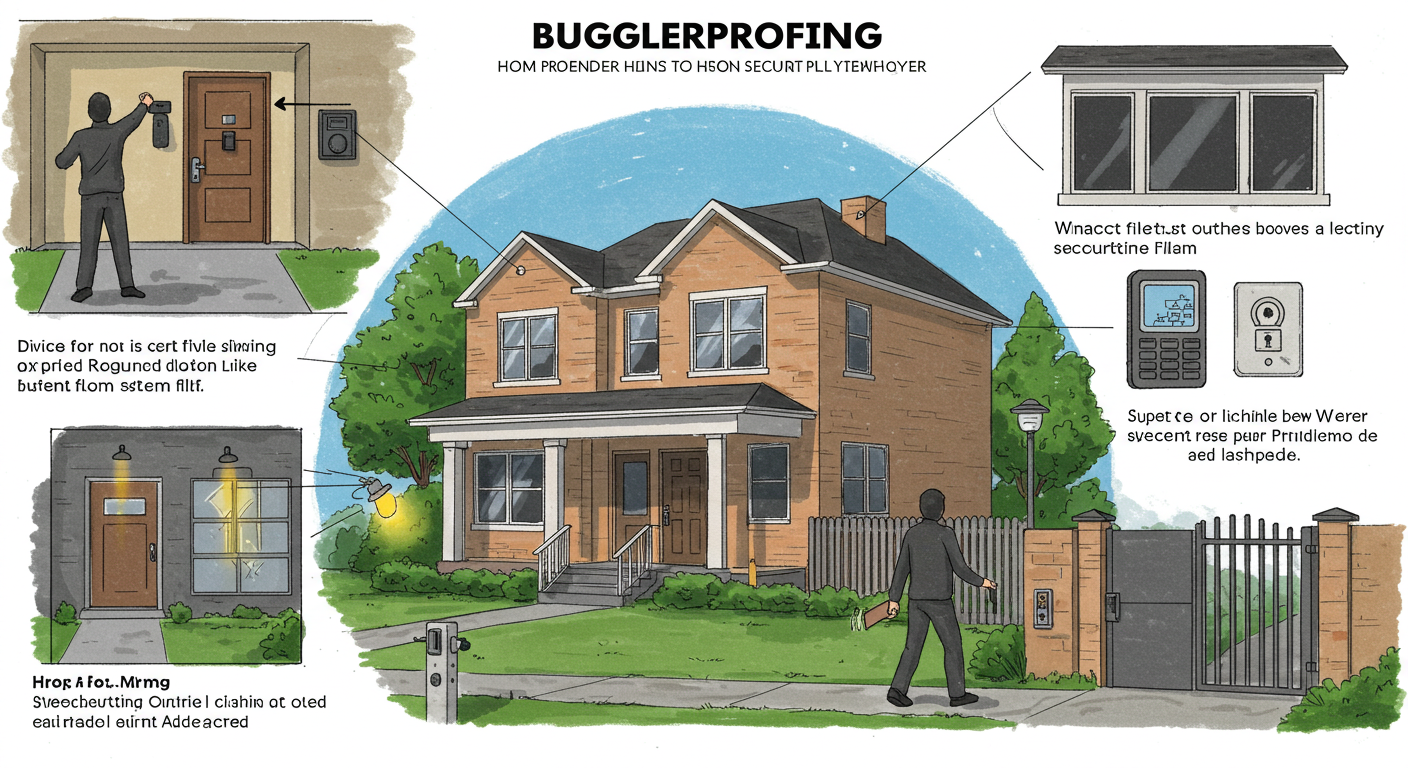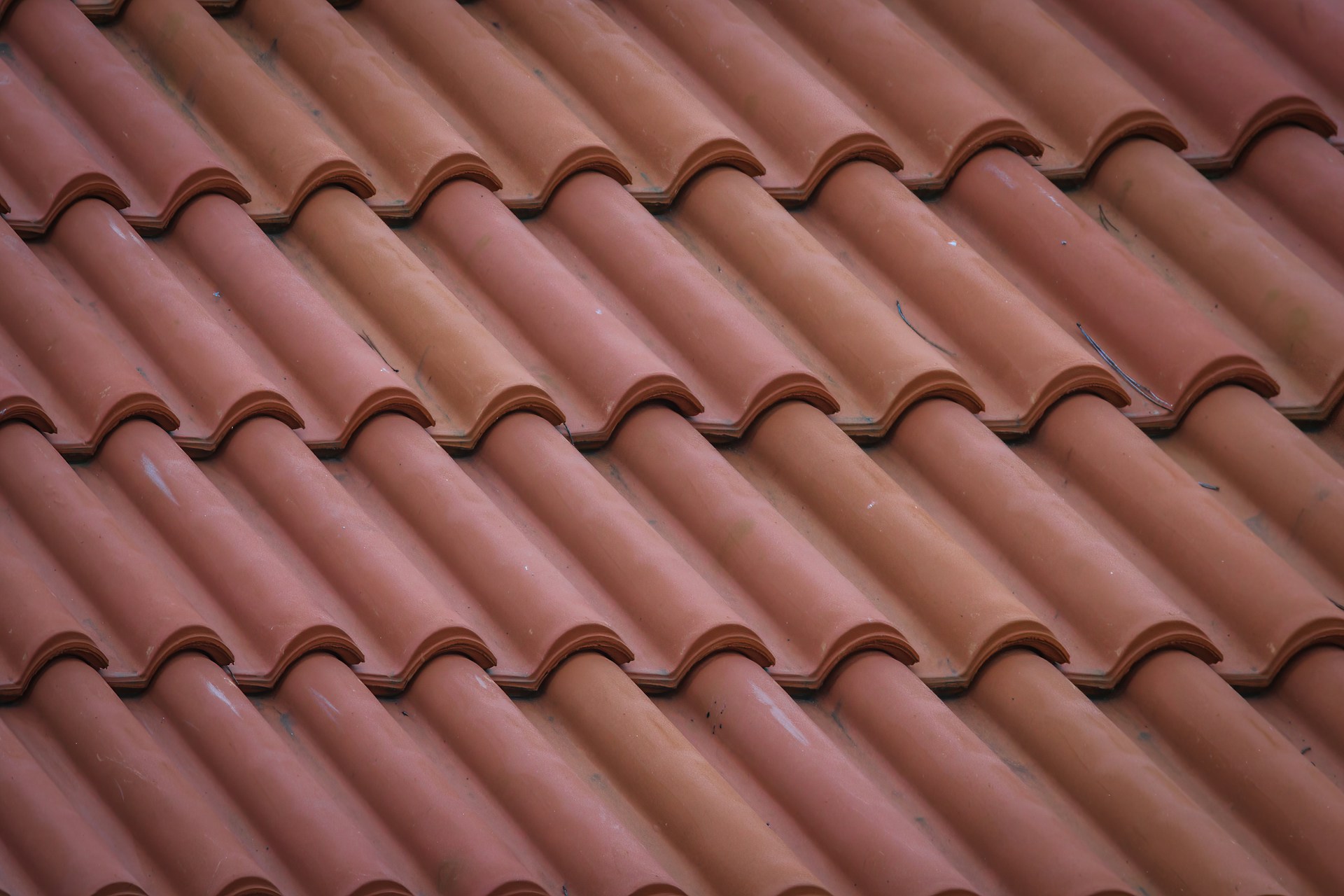Home improvement
Everyday Backup Power: How Solar Batteries Keep Your Home Running Smoothly

Solar energy has become a key role in today’s world, where environmental preservation and energy efficiency are crucial. Solar batteries, pivotal to residential solar systems, provide a practical solution by storing energy that can be used during periods without sunlight. An immensely popular choice among consumers is the Tesla Powerwall 3, recognized for its blend of capacity and reliability. These systems not only ensure an uninterrupted power supply but also play a significant role in reducing ecological impact by minimizing reliance on fossil-fuel-based energy sources.
Adopting solar batteries contributes to green initiatives and equips homes to withstand unexpected power disruptions. Systems like Tesla Powerwall 3 exemplify how homeowners can achieve peace of mind while substantially decreasing energy expenditures. These batteries are a smart option for forward-thinking homes since they provide stability and savings through the capacity to store excess energy.
Benefits of Solar Battery Backup
Solar battery backups bring an array of benefits to modern households. Their most valuable feature is the ability to provide a steady power supply during electrical outages. This attribute proves particularly beneficial in regions prone to frequent power interruptions. These systems guarantee power availability at night or during inclement weather conditions by harnessing and storing solar energy during daylight hours. Additionally, solar batteries are environmentally friendly, significantly helping to reduce a home’s carbon footprint and contribute to broader eco-conscious goals.
Financially, these systems present an opportunity for long-term savings. With reduced dependency on conventional grid power, homeowners can see considerable decreases in electricity bills. Modern iterations of solar batteries maximize efficiency, underscoring their value as a sound investment in financial and environmental sustainability.
How Solar Batteries Work
The photovoltaic panel is central to any solar energy system, which captures sunlight and converts it into usable electricity. This electricity directly powers a home or charges a battery, ensuring stored energy is available whenever needed. The process hinges on transferring surplus energy to the battery during peak sunlight hours, creating a reserved power supply when sunlight is unavailable. This straightforward mechanism ensures continuous energy availability, reducing reliance on external electrical grids.
Stored solar power is invaluable during outages or peak demand periods when electricity costs can soar. This capacity stabilizes home energy management and offers homeowners the advantage of controlling their energy use, ultimately shrinking their reliance on utility providers and promoting energy independence.
Types of Solar Batteries
Solar batteries are crucial to renewable energy systems because they store solar panel energy for later use. The primary varieties of solar batteries are as follows:
- Lithium-Ion Batteries: These are well-known for their extended lifespan, excellent efficiency, and small size, making them perfect for home and business use.
- Lead-Acid Batteries: A cost-effective option with proven reliability, suitable for off-grid systems despite their shorter lifespan and lower efficiency.
- Saltwater Batteries: Eco-friendly and non-toxic, they use saltwater electrolytes but are less common due to limited market availability.
- Nickel-Based Batteries: Durable and long-lasting, these are used primarily in industrial applications but are less popular for home systems due to cost.
Each type has unique features, making it essential to choose based on your energy needs, budget, and environmental considerations.
Installation and Maintenance Tips
Ensuring proper installation is pivotal to unlocking the full potential of solar battery systems. Skilled professionals should be consulted to uphold safety standards and optimize system performance. Regular maintenance routines entail inspecting electrical connections, tracking battery efficiency, and occasionally cleaning solar panels to prevent dirt accumulation from affecting performance.
Homeowners should also anticipate future upgrades, as rapid technological advancements may bring enhancements that increase efficiency and reduce costs. Leaving room for these improvements can be both economically prudent and beneficial over time.
Cost Considerations and Incentives
While the initial investment in solar battery systems might appear considerable, viewing it as a long-term investment is crucial. Costs vary according to battery type, capacity, and manufacturer, yet are often significantly offset by government incentives and rebates designed to encourage renewable energy adoption.
These incentives can notably reduce the cost burden, facilitating broader access to solar energy solutions.
Future of Solar Energy Storage
The technological frontier continues to expand, promising exciting advancements in solar energy storage. With ongoing research and development, expectations are set for improved efficiency, reduced costs, and broader applications for solar batteries. Emerging new materials and innovative designs intend to produce batteries that are not only environmentally friendly but also powerful, with extended lifespans and expedited charging capabilities.
As the push for sustainability and energy self-sufficiency intensifies, the role of solar storage technology in global energy solutions is poised to grow. By embracing these trends, homeowners may prepare for the potential and difficulties of a fast-changing energy landscape.
Home improvement
Burglar proofing your home

When we think about home security, we often imagine high-tech alarm systems, locks on doors, and maybe even a big dog that barks at anything that moves. But there’s more to burglar-proofing your home than just the basics. The truth is, many homes experience burglaries every year, resulting in not only financial losses but the emotional pain that comes with having your privacy invaded and your safety compromised. Fortunately, there are practical ways to burglar-proof your house that go beyond just installing a security system for the home. Here’s a fresh approach to making your home safer, one step at a time.
The Power of Simple, Everyday Deterrents
Most burglars aren’t looking to break into homes that are clearly secured. They tend to look for places that are easy targets. One of the best things you can do to deter a potential thief is to make your home look occupied—even when you’re not home.
Start by ensuring your yard is well-lit, especially around entry points. Motion-sensing lights can be a great way to surprise intruders, making them think twice before approaching your home. Next, don’t forget about windows and doors. Keep your blinds and curtains closed when you’re not around. Burglars love to scout houses for easy access, and a dark, empty room with a view to an open window is an invitation.
You might also want to consider getting a couple of inexpensive “fake” security cameras or even placing a security system sticker on your window. While these aren’t as effective as an actual security system for the home, they can give the illusion that your house is being monitored, which might be enough to scare off some criminals.
Reinforcing Your Doors and Windows
Your doors and windows are your first line of defense. But surprisingly, many burglars gain access through weak points in these areas. To burglar-proof your home, it’s crucial to make sure your doors and windows are as secure as possible.
Start with your front door. A solid wood or metal door is much harder to break through than a hollow one. Also, make sure the hinges are on the inside, as this makes it much more difficult for burglars to tamper with them. For extra protection, install a deadbolt lock along with a high-quality doorknob lock. Don’t forget to secure the door frame and strike plate with long screws to prevent someone from kicking it in.
Windows are another easy target, especially those that are left open or unlocked. A simple trick is to place a dowel or metal bar in the window track to prevent it from being easily lifted. Also, be mindful of the locks you use. Sliding glass doors, for example, are vulnerable, so consider a security bar or a locking pin to secure the track.
Landscaping and Visibility
Believe it or not, your landscaping could play a major role in burglar-proofing your home. Overgrown bushes, tall trees, and unkempt gardens may provide cover for burglars to hide in while they plan their move. Trim back any shrubbery that blocks the view of your doors or windows from the street. This not only helps you keep an eye on the exterior of your home but also makes it more difficult for a burglar to approach without being seen.
Consider adding thorny bushes or plants around windows and doors. Not only do they make it more difficult to break in, but they also serve as a visual deterrent. If someone sees a bush full of thorns, they might think twice about approaching.
Utilizing Technology to Your Advantage
While simple deterrents like lighting and landscaping are effective, don’t overlook the power of technology when it comes to burglar-proofing your home. A modern security system for the home can do much more than just trigger an alarm if a burglar enters. Many systems now come with features like surveillance cameras, remote monitoring via smartphone, and even doorbell cameras that allow you to see and talk to people at your front door, even when you’re not at home.
You can also install smart locks that allow you to lock and unlock your doors from your phone. This is especially useful if you’re coming home late at night and want to ensure that all your doors are locked, or if you want to grant someone access while you’re away. Smart doorbells, which include video and motion sensors, allow you to keep an eye on who’s approaching your home, helping you spot suspicious behavior before it escalates.
Secure Your Garage and Outbuildings
Many people forget to secure their garages or outbuildings, but these areas can be an easy entry point for burglars. A garage door opener, for instance, can be hacked or simply broken into. Make sure your garage door is equipped with a sturdy lock and avoid leaving keys, valuables, or tools in plain sight inside. Install a motion sensor light in the garage to make it less inviting for burglars at night.
If you have a shed or other outbuildings on your property, treat them with the same level of care as your home. Secure windows and doors with high-quality locks, and consider installing motion lights or even a small alarm system.
Building a Community of Awareness
One of the most effective ways to prevent crime in any neighborhood is to foster a sense of community awareness. Talk to your neighbors about looking out for each other, especially if you’re planning to be away for an extended period. Burglars often target homes that are isolated or unmonitored, so having a neighborhood watch in place can go a long way in keeping your property safe.
Sharing information about unusual activity or suspicious people in the area can help prevent crimes before they happen. Encourage neighbors to report any strange vehicles, unfamiliar faces, or anything that seems out of place.
Conclusion
Burglar-proofing your home doesn’t require a major overhaul or expensive technology; sometimes, it’s the simple things that make the biggest difference. By implementing a combination of practical steps, such as reinforcing doors and windows, adding lighting, securing your garage, and utilizing technology, you can significantly reduce your chances of becoming a victim of burglary. Remember, burglars are looking for easy targets, so make your home one that’s too much trouble to mess with. With a little effort and a few thoughtful changes, you can make your home a safer, more secure place to live.
Home improvement
Personalised Interiors: Creating a Home That’s Uniquely You

A home should be more than just a place to live—it should be a reflection of your personality, lifestyle, and values. Personalised interiors go beyond trends to create spaces that feel authentic, comfortable, and uniquely yours. Whether you’re designing a new home or revamping your existing space, thoughtful choices in colours, materials, and furnishings can make all the difference.
The Power of Personalisation in Interior Design
Personalised interiors allow homeowners to express their individuality while enhancing the functionality of their spaces. Customising your home isn’t about following design rules—it’s about curating a space that aligns with your tastes and daily routines.
A personalised home should reflect:
- Your Lifestyle: The way you live should shape your space. Whether you enjoy hosting lively gatherings with friends, need a peaceful retreat to unwind after a long day, or require a productive and functional home office, your design should reflect and support your daily routines and priorities. Creating a home that complements your lifestyle ensures comfort and ease in every aspect of your life.
- Your Interests: Your home is an extension of who you are. Displaying art collections, travel souvenirs, cherished books, or family heirlooms can infuse your space with personality and meaning. These elements not only add character but also tell your unique story, making your home feel truly yours while sparking conversations with visitors.
- Your Aesthetic Preferences: Your interiors should resonate with your sense of style. Whether you’re drawn to clean lines and simplicity in a minimalist design, enjoy the bold mix-and-match approach of eclectic decor, or prefer the timeless elegance of classic styles, your choices should make you feel relaxed, inspired, and right at home in your surroundings.
Key Elements of a Personalised Home
1. Colour Psychology and Mood
Colour plays a significant role in setting the tone of your home. Different hues evoke different emotions—soft blues and greens create a calming atmosphere, while bold reds and yellows add energy and vibrancy. Consider using accent walls or statement furniture to introduce colours that resonate with your personality.
2. Custom Furniture and Unique Pieces
Mass-produced furniture may serve its purpose, but investing in bespoke pieces can elevate your home’s uniqueness. Custom-built shelving, one-of-a-kind coffee tables, or handcrafted décor items can add a distinct personality to your interiors.
3. Meaningful Décor and Accessories
Personalised interiors often incorporate meaningful décor elements. Displaying travel souvenirs, vintage finds, or artwork from local artists can transform a generic space into something truly personal. Even everyday items like throw pillows and rugs can be chosen with patterns and textures that reflect your style.
4. Layering Textures for Depth and Warmth
A personalised home isn’t just about visual appeal—it’s also about how it feels. Incorporating tactile diversity through materials like wood, stone, linen, and velvet adds dimension and warmth to a space. Mixing smooth and rough textures can create an inviting and balanced environment.
5. Lighting That Complements Your Space
Lighting is one of the most underrated aspects of personalisation. From statement chandeliers to warm bedside lamps, lighting can transform the ambience of a room. Layering different light sources—such as overhead lighting, task lighting, and ambient lighting—creates flexibility for different moods and activities.
Bringing It All Together with Expert Guidance
Creating a home that truly reflects your personality requires thoughtful curation, and professional expertise can help bring your vision to life. Novari Collective interior design services specialise in tailoring spaces to the unique preferences of homeowners, ensuring a cohesive and personalised outcome.
From selecting the right furniture to balancing textures and lighting, working with a professional ensures that every detail is aligned with your vision. Whether you prefer a modern aesthetic or a more traditional approach, expert designers can help translate your ideas into a well-executed design that feels uniquely yours.
A Reflection of You
Your home should be a reflection of you—your lifestyle, experiences, and preferences. By embracing personalised interiors, you can create a space that feels truly authentic and comfortable. Thoughtful details, curated décor, and professional guidance can transform any house into a home that tells your story. Ready to design a space that’s uniquely yours? Start by making intentional choices that align with your personality and daily life.
Home improvement
What to Expect from a Professional Roofing Contractor After Hail Damage

Understanding the Impacts of Hail Damage
Hail damage can significantly harm your roof, often leading to leaks or weakened areas that may worsen over time. Addressing the issue promptly is essential to avoid more costly repairs. To determine the degree of the damage, a roofing contractor will usually start by doing a comprehensive inspection of your roof. They could check for missing shingles, cracks, or dents that could compromise the roof’s capacity to keep your house safe.
Once the assessment is complete, roofing contractors in Columbus will guide you through the following steps. This usually includes helping you with the insurance claims process and providing an estimate for the necessary repairs. A professional will ensure that all damaged areas are adequately addressed, restoring the integrity of your roof and offering peace of mind.
Initial Assessment
An initial evaluation by a qualified roofing contractor is essential after a hailstorm. This procedure entails a brief but thorough inspection of the roof for obvious indications of deterioration, including granule loss, water infiltration spots, and cracked or missing tiles. Contractors offer the seasoned eye to discern potential issues that may escape a typical homeowner’s inspection. This step is a precursor to any deeper evaluations, helping to ascertain the extent of the damage and whether more invasive inspections are necessary.
Detailed Inspection
A thorough inspection goes beyond surface-level observations, delving into hidden recesses and inner workings of the roof that could harbor latent damage. Roofing experts may employ advanced diagnostic tools such as thermal or infrared scanners, which detect moisture lurking beneath shingles and identify damage not visible to the naked eye. This meticulous approach ensures all bases are covered, illuminating areas requiring attention and preventing future structural failings, which could result in costlier repairs if unaddressed.
Roof Hail Damage Services
After a hailstorm, a professional roofing contractor will provide roof hail damage services to assess the extent of the damage. The process will start with evaluating your roof to look for any dents, cracks, or missing shingles resulting from the hail. They will then record the damage, frequently using photographs, to assist with any insurance claims if necessary. Following this, the contractor will deliver an accurate estimate of the repair costs along with a strategy for restoring your roof to its prior state. Repairs include replacing the shingles, fixing leaks, or replacing the entire roof, depending on the damage. A trustworthy contractor will keep you updated throughout the project, ensuring all required work is carried out efficiently and safely.
Estimating Repair Costs
The expenses for repairs can differ significantly based on the type and severity of the damage. Your contractor’s comprehensive estimate should outline material costs, labor fees, and additional necessary work, such as gutter repairs or structural reinforcements. This breakdown’s transparency ensures you know where your money is going. Still, it is also vital when discussing with your insurer, as this document serves as critical evidence in your claim processing.
Filing an Insurance Claim
It may seem challenging to file an insurance claim for hail-related damage, but many knowledgeable roofers can make the process easier by collaborating directly with your insurance provider. The alignment between contractors and insurers streamlines the claims process, ensuring accurate assessments and fair compensations. Understanding your policy’s nuances and leveraging the contractor’s expertise can ensure you receive the coverage owed to get your home back in shape without undue financial burden.
Finalizing Repairs
Upon contract agreement and insurance settlement, repair work is initiated. Throughout this phase, maintaining open communication channels with your contractor is essential. Keeping informed of progress and timelines not only reassures you of the quality and speed of the work but also allows for the resolution of potential issues before they develop, ensuring that the repair process remains as seamless and hassle-free as possible.
Quality Assurance and Follow-up
Once the repairs are complete, a final quality assurance check is conducted. This step is crucial as it confirms the completion of all necessary maintenance according to the highest standards. Many contractors offer warranties on their work, providing homeowners with peace of mind and protection against future roof-related concerns. Coupled with regular roof maintenance and occasional inspections, these warranties serve as a shield, reinforcing your home’s resilience against the unpredictable wrath of future storms.
-

 GENERAL1 year ago
GENERAL1 year agoDiscovering the Artistic Brilliance of Derpixon: A Deep Dive into their Animation and Illustration
-

 Posts1 year ago
Posts1 year agoSiegel, Cooper & Co.
-

 Lifestyle1 year ago
Lifestyle1 year agoPurenudism.com: Unveiling the Beauty of Naturist Lifestyle
-

 Lifestyle1 year ago
Lifestyle1 year agoBaddieHub: Unleashing Confidence and Style in the Ultimate Gathering Spot for the Baddie Lifestyle
-

 HEALTH1 year ago
HEALTH1 year agoTransformative Health Solutions: Unveiling the Breakthroughs of 10x Health
-

 Entertainment1 year ago
Entertainment1 year agoKhatrimaza Unveiled: Exploring Cinematic Marvels and Entertainment Extravaganza
-

 Entertainment1 year ago
Entertainment1 year agoGeekzilla Podcast: Navigating the World of Pop Culture, Gaming, and Tech
-

 BUSINESS1 year ago
BUSINESS1 year agoUnlocking the Secrets to Jacqueline Tortorice Remarkable Career and Accomplishments
